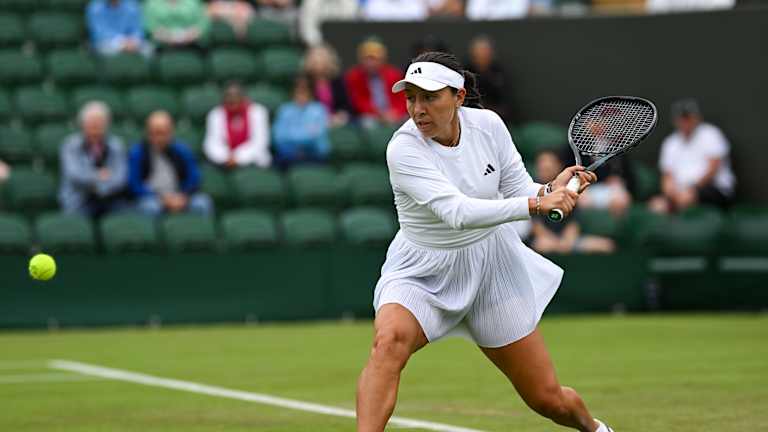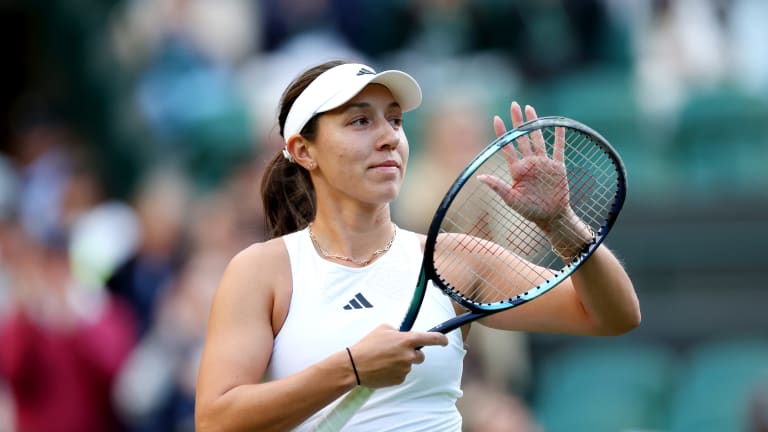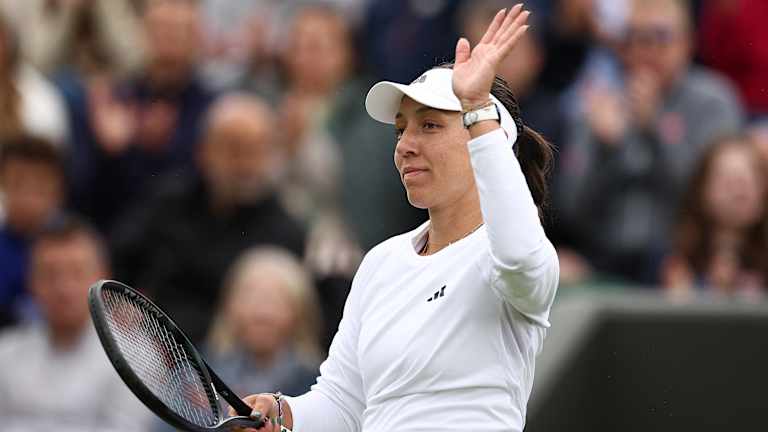Wimbledon
Jessica Pegula stands at a crossroads, with Wimbledon her best shot for a breakthrough
By Jul 03, 2024Wimbledon
Wimbledon to replace line judges with electronic line calling from 2025
By Oct 09, 2024Wimbledon
The amazing journey of Henry Patten from IBM data logger to Wimbledon doubles champion
By Jul 16, 2024Wimbledon
Hsieh Su-Wei, Jan Zielinski win mixed doubles title at Wimbledon
By Jul 15, 2024Wimbledon
Why Wimbledon Endures
By Jul 15, 2024Wimbledon
Novak Djokovic seeks 2024 answers for Alcaraz and Sinner after great effort: 4 ATP Wimbledon takeaways
By Jul 14, 2024Wimbledon
Carlos Alcaraz is a champion establishing how high he will climb with latest Wimbledon title
By Jul 14, 2024Wimbledon
Nicolai Budkov Kjaer makes history in winning junior boys' Wimbledon title; Renata Jamrichova wins girls' title
By Jul 14, 2024Wimbledon
Carlos Alcaraz beats Novak Djokovic again in Wimbledon final for fourth Grand Slam title
By Jul 14, 2024Wimbledon
For Jasmine Paolini, Barbora Krejcikova was one forehand and one serve too good in the Wimbledon final
By Jul 13, 2024Jessica Pegula stands at a crossroads, with Wimbledon her best shot for a breakthrough
The American's own early-summer Super Bowl has arrived. Is she ready to meet the moment?
Published Jul 03, 2024
Advertising

Pegula’s style compensates for the fact that she doesn’t have the quickness or explosive movement of some of her rivals. Instead, she has a fine understanding of tennis on grass.
© Getty Images
Advertising

In 2023, Pegula became just the fifth American woman to reach the quarterfinals at all four majors in the past 25 years. But she remains without a victory in a Grand Slam elite eight.
© Getty Images
Advertising
Advertising
Advertising

Pegula faces Wang Xinyu in her next match.
© AFP via Getty Images